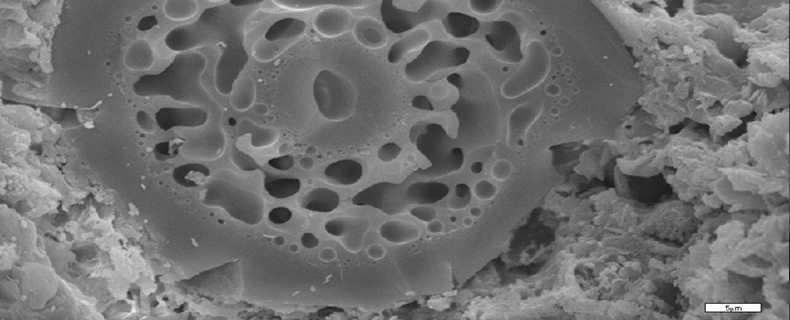| School |
Natural Sciences |
Academic Unit
|
Geology Department |
Level of Studies
|
Undergraduate |
Course Code
|
GEO_802 |
| Εξάμηνο σπουδών |
6ο |
Course Title
|
Geology of Technical Works and Environment |
Independent Teaching Activities
|
Lectures, Laboratory Work, Fieldwork |
Weekly Teaching Hours
|
2(L), 2(LW), 1F |
| Credits |
6 |
Course Type
|
Field of Science (Geology) and Skills Development (Technical Works and the Environment) |
Prerequisite Courses
|
Typically, there are not prerequisite course. It is however recommended that students should have at least a basic knowledge of Engineering Geology |
Language of Instruction & Examinations
|
Greek. Teaching may be however performed in English in case that foreign students attend the course |
Is the Course offered to Erasmus Students
|
Yes |
| Course Web-Page (URL) |
https://eclass.upatras.gr/courses/GEO349/ |
Learning Outcomes
|
The course gives the theoretical and objective knowledge related to the identification and description of the engineering geological conditions that prevail on technical works design and their environmental impacts. Particular emphasis is given to selecting and identifying the most "critical" geological parameters that will affect technical work construction and their safe operation.
By the end of this course the student will possess cognitive and practical skills and has the ability to:
- Utilization of know - how to assess the physical - mechanical parameters of rock formations (rock material and rock mass) through laboratory and on - site methodologies and simulations (use of appropriate methods, materials and instruments)
- Application of knowledge and creative thinking to solve problems related to the particular and unpredictable geological conditions that will be encountered in the design of the technical project (slope protection, tunnel supporting, dam grouting, etc.)
Also the student in the working environment has the ability to respond:
- With competence in interdisciplinarity required by technical works (study - construction)
- With responsibility and reliability in the case of autonomous employment
|
General Competences
|
- Retrieve, analyze and synthesize data and information, using the necessary technologies
- Decision making
- Adapt to new situations
- Working in an interdisciplinary environment
|
| Syllabus |
- Engineering behaviour of rock mass: rock mass classification systems RMR, Q and Geological Strength Index (GSI). Applications on the design and construction of tunnels, slopes and foundations.
- Landslides: terminology and classification, causal and triggering factors, remedial measures
- Design and construction of dams: classification of dams, design criteria, engineering geological requirements, dam and reservoir waterproofing, monitoring techniques.
- Design and construction of tunnels: geological conditions during construction, rockmass deformation and failure mechanism, construction methods (NATM and TBM) and supporting techniques.
- Laboratory work in: (a) laboratory rock testing (Rock Mechanics) according to ASTM, BS and Ε103-84 standards, (b) evaluation of in situ testing results according to ASTM, ISRM and Ε103-84 standards
- Field work in rock mass classification schemes for tunnel and slope design requirements.
|
| Delivery |
Lectures and laboratory work face to face. |
Use of Information & Communication Technology
|
- Use of Information and Communication Technologies (ICTs) (power point) in teaching.
- Electronic Delivery of Laboratory Exercises in PDF files, individually to each student, weekly, two (2) days prior to the educational process, that can freely download using a password which is provided to them after the initial registration on the website of the Laboratory of Engineering Geology using a personal password
- Support of Learning Process and Dissemination of educational material through the e_class platform
|
Teaching Methods
|
| Activity |
Semester workload |
| Lectures (2 conduct hours per week x 13 weeks) |
2×13=26 |
| Laboratory work (2 conduct hours per week x 13 weeks) including practice in testing procedure and apparatuses as regards (a) Rock Mechanics and (b) in situ rockmass measurements for geotechnical design |
2×13=26 |
| Field work (group practice work) |
13 |
| Autonomous study |
85 |
| Total number of hours for the Course |
150 |
|
Student Performance Evaluation
|
Ι) Laboratory and field work exercise and exams (30%):
(a) Each lab exercise is resolved and delivered the next week after its educational process. After it is corrected, marked and returned to the student. Field Work is immediately delivered just after the completion of the training process.
The average mark of both lab and filed work exercise is calculated.
(b) Final written examination on laboratory exercises.
Final Lab and Field Work Grade =(a)*9% + (b)*21%
ΙΙ) Final Written Course Exams (70%):
Ten (10) questions of short answer related to lectures |
Attached Bibliography
|
Text Books
- Γεωλογία Τεχνικών έργων (2007). Γ. Κούκης, Ν. Σαμπατακάκης Εκδόσεις Παπασωτηρίου, σελ. 575.
- Engineering Geology. Principle and practice (2009). D.G. Price, Springer.
- Engineering Geology (2007). F.G. Bell. Second edition. B.H.
Scientific International Journals:
- Bulletin of Engineering Geology and the Environment. Springer
- Engineering Geology. Elsevier.
- Geotechnical and Geological Engineering.
|






























